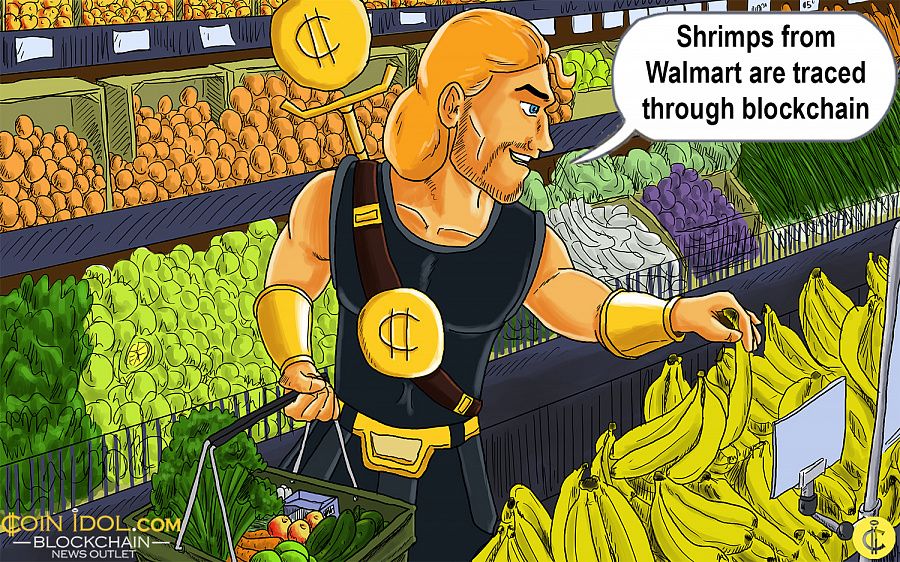Walmart to put Indian Shrimp on the Blockchain
Oct 08, 2019 at 11:53 //
News
Walmart is collaborating with IBM’s Food Trust initiative to improve the supply of delicious seafood shrimp from India. Walmart also promised to help small seafood exporters to attain Best Aquaculture Practices (BAP) certification to improve product competitiveness on the global market.
Shrimp on the Blockchain
Given the increasing consumer demands to trace the sources of the food they buy, companies want to deliver what consumers want. IBM spearheaded the quest for transparency in the food business by building its a platform that uses blockchain to improves transparency, standardization, and efficiency within the food supply chain.
Different enterprises can use the IBM platform to benefit from the use of blockchain in the food supply chain. Recently, Walmart an American multinational retail corporation announced its collaboration with IBM’s Food Trust hub to improve the supply of shrimp from India. The company has already launched a pilot scheme with an Indian local food processor from the Indian Southern state of Andhra Pradesh.
Walmart revealed that the introduction of blockchain in the Shrimp supply chain would improve the access to information of the product to consumers. Blockchain would also help in tracing the origin of the product right from the farms in India to the supermarkets in the USA and other countries.
Both Local Farmers and Consumers to Benefit
Walmart plans to fund smallholder farmers in the Andhra Pradesh southern coastal Indian State to gain BAP certification training. The company revealed that it will also support the local farmers to gain access to new market opportunities across the world.
In its trial period, Walmart is to enable smallholder farmers to export shrimp to Walmart's membership-only retail stores. The products will be shipped to Walmart’s Sam’s club food safety program which requires suppliers of seafood to complete BAP standards approval. BAP Standards enforces among others responsible cultivation and sustainable farming practices to ensure high-quality seafood products.
Meanwhile, seafood consumers will be able to easily trace the origin of the products they consume. Consumers can rest assured that they are purchasing products that passed through the Internally approved BAP standards.
Blockchain Projected Impact on Global Fishing Market
The global fishing market was valued at $169 billion in 2015. However, the market is expected to expand by about 5.3% to reach $242 billion by the year 2022. India is one of the world’s largest countries in terms of population and landmass. The country also doubles as the world’s biggest exporter of Shrimp.
The United States is the largest consumer of the Indian Shrimp responsible for about 46% of all Indian shrimp exports. Last year India earned about $2.17 billion from shrimp exported into the United States.
Given the existing barriers to international trading and proven capabilities of Blockchain, Shrimp trade is expected to grow between the two nations. Blockchain fosters transparency in the supply chain and enables traceability.
OhNoCryptocurrency via https://ift.tt/2PblI7a @, @Khareem Sudlow
